Not the Tango, Nor the Macarena, Rather a Mambo Number 5 in Europe
Adelina Marini, December 2, 2015
Jean-Claude Juncker loves using the metaphor of the tango. It is often part of his speech when he talks about negotiating with Great Britain about its remaining a part of the EU. He used it in the press conference after the end of the unique summit of the 28 EU member states and Turkey. To a question about the resolution of the Cyprus issue he resorted to “It takes two to tango”, thus avoiding the lack of solid enough arguments in favour of optimism or pessimism about the summit’s outcome. The EC boss, however, got interrupted by European Council President Donald Tusk (Poland, EPP), who thinks “In Europe we need Macarena not tango”. It just did not become clear why the former Polish prime minister thinks so. A probable explanation is that the hit song by Los Del Rio from the beginning of the 90’s portrays a dance quite more complicated than the tango. The video to the song is truly a much better illustration than tango for two, for it shows the two suited singers, around which several women with different dynamic and different cultural characteristics are dancing.
If we presume the two from Los Del Rio are respectively Jean-Claude Juncker and Donald Tusk – the institutional leaders of the EU - than the dancing girls are the member states – each with its own specifics and cultural differences. If this is the metaphor, then a much more appropriate song would be another hit from that era – “Mambo number 5” of Lou Bega. The song came out in the late 90’s and for a long time occupied the top spots in music charts. It seems more fitting for it clearly portrays what the EU really is – “A little bit of Monica in my life; A little bit of Erica by my side; A little bit of Rita is all I need; A little bit of Tina is what I see; A little bit of Sandra” and so on. In other words – a little bit of Orbán, a little bit of Cyprus, a little bit of Cameron, a little bit of Hollande, a lot of Merkel, some Greece, Farage, Le Pen etc. In other words, the EU is not a single person which Turkey or Great Britain could dance with, but rather many people, not all of whom want to dance ... with Turkey.
Turkey-EU relations recharged
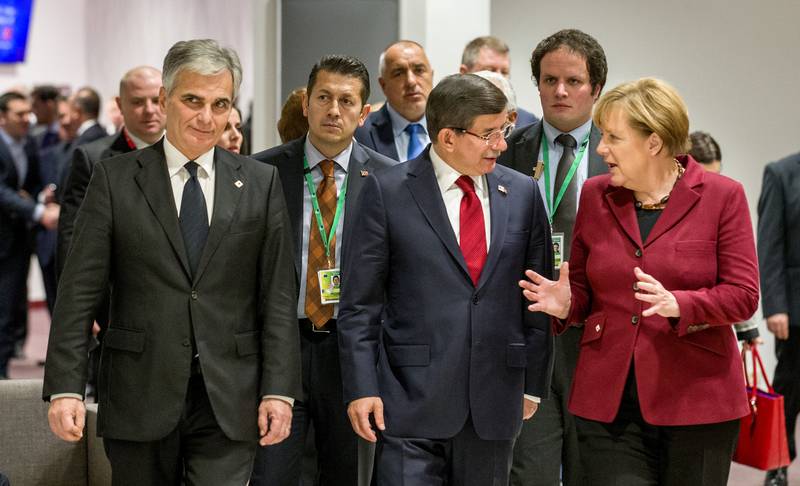 As usual, a crisis is required to set the cumbersome European machine in motion. Relations between the Union and Turkey have long been stuck in the mud and it seemed there was no will on both sides to save the relationship. No one did anything to untangle the knot so relations began to go chilly. Turkey is becoming more and more authoritarian and the EU – more self-absorbed again in internal problems. The refugee crisis served as a powerful change catalyst. It led to a paradox. On the one hand it strained relations within the Union to the limit and on the other it made member states realise they cannot go on without Turkey.
As usual, a crisis is required to set the cumbersome European machine in motion. Relations between the Union and Turkey have long been stuck in the mud and it seemed there was no will on both sides to save the relationship. No one did anything to untangle the knot so relations began to go chilly. Turkey is becoming more and more authoritarian and the EU – more self-absorbed again in internal problems. The refugee crisis served as a powerful change catalyst. It led to a paradox. On the one hand it strained relations within the Union to the limit and on the other it made member states realise they cannot go on without Turkey.
The good news from the Sunday summit is that Turkey has not lost interest in the EU. On the contrary, this interest seems so keen that Turkey is prepared to compromise with things it never before demonstrated any wish to – doing what is necessary to resolve the Cyprus issue and helping the EU overcome its problems stemming from the refugee crisis. Turkish Prime Minister Ahmet Davutoğlu was unambiguous at the press conference on Sunday evening when he showed a totally different face. Back when he was still Minister of Foreign Affairs and participated on occasion in the rare meetings in Brussels on opening negotiation chapters he never spoke in English. Always in Turkish. The same was done by the Chief Negotiator for Turkish Accession to the EU during press conferences following the EU-Turkey Association Council meetings. On November 29th, however, the Turkish Prime Minister spoke mainly in English, which is a very loud signal to the media community. A signal that shows Turkey is now ready to be heard not just by its own, but by European communities as well.
And the second one is far more important, as is shown in his answer to the question how will the Turkish people’s support for EU membership be restarted. The veteran of Turkish politics Ahmet Davutoğlu gave an ambiguous answer to that question: “It depends which question you're asking to the people. If you ask the people 'Do you want Turkey being member of EU?', the percentage is very high. But if you ask 'Do you believe if the EU will accept Turkey as a member country?', the expectation is very low”. In other words, support for Turkey’s EU membership within the country itself is directly linked to support for it within the member states and this is something both sides should work hard on. According to Mr Davutoğlu, if negotiation chapters are opened within the next few months and the visa regime is relaxed, Turks will start believing again that their European future is possible. Regrettably, the EU, represented by another political veteran – Jean-Claude Juncker – and Donald Tusk, did not manage to respond properly to this invitation.
Instead of saying they will work on changing the attitudes towards Turkey within the EU and explaining what this depends on, the two of them turned out to be unprepared for a positive outcome of the negotiations with Turkey. Jean-Claude Juncker did not agree that over the last few years Turkey has been neglected, an accusation contained in the question of a Turkish journalist. His arguments, however, were unconvincing. He mentioned Donald Tusk’s visit to Ankara in September, as well as his own recent visit to Turkey. All these visits, however, were in the context of the refugee crisis, not because the EU had not forgotten about Turkey. The Turkish PM did not look “upset” by this, quite the contrary. He looked happy about what he got from the 28 as a compensation for the previous standstill. And this is a serious commitment to pulling the negotiation process out of stagnation and the proverbial European solidarity.
On December 14th, a new negotiation chapter with Turkey will be opened – number 17 “Economic and monetary policy”. Work on the synchronisation of Turkish legislation with this part of European law will mean a ban on direct financing of the public sector by the central bank and the privileged access of the public sector to financial institutions. In addition, Turkey will gradually enter the heavy coordination of economic policy and will learn to work by the criteria of the Stability and Growth Pact, being further prepared for that by the European semester, introduced by the previous Commission to candidate countries as well. With the very opening of negotiation chapters the EU commits to conversing with Turkey on a much more regular basis, whether further chapters are being opened or not. There will be two mandatory summits like the one on Sunday, which is an absolute precedent and had to happen a long time ago as this website advocated repeatedly.
Apropos, Croatian PM Zoran Milanović also stated after the summit that this type of conversations should have been organised earlier. He feels that however well informed one may be, there was much to be heard and learned from Ahmet Davutoğlu’s speech. Apart from summits, there will be regular political dialogues organised on a ministerial level. There will be regular contacts structured around energy and economic issues. There is also a promise for visa liberalisation in the EU’s basket of goodies, if Turkey fulfils the criteria of course. Jean-Claude Juncker and Donald Tusk made it very clear that there will be no stepping back from the criteria, regardless of Bulgarian PM Boyko Borissov’s statement before the summit that this is exactly what he will propose – making an exception for Turkey by loosening the visa regime for civil servants and the business. 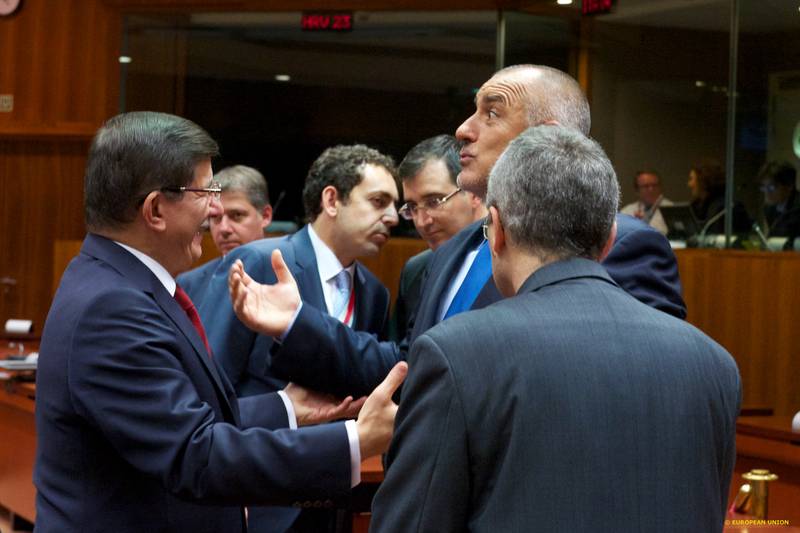 He reminded a similar setup in pre-visa-free Bulgaria, when civil servants had business passports, which gave them easier access to visas.
He reminded a similar setup in pre-visa-free Bulgaria, when civil servants had business passports, which gave them easier access to visas.
European solidarity regarding the refugee crisis is shown in an agreement to release three billion euro to the refugees currently on Turkish territory. We are talking about 2.5 million people, 2.2 million of whom are Syrian refugees and the rest are Iraqis. A special fund is being set up for this purpose that will accumulate three billion euro. This amount is just the beginning, as was later clarified by German Chancellor Angela Merkel. How much will each country contribute, however, is still early to say. According to Boyko Borissov, first of all Commission Vice-president Kristalina Georgieva, who is responsible for the budget, should assess where could additional funds from the European budget be mobilised and only then could member states estimate how deep can they reach into their pocket. Mr Borissov warned, however, that he will block any attempt to take money out of the cohesion funds, regardless of Bulgaria’s claim of being one of the most hit states by the refugee wave.
German Chancellor Angela Merkel clarified at her briefing for journalists after the summit that the three billion will be released in the form of refugee projects. In order for Syrian refugees to remain in Turkey there should be conditions created for employment and education. Something that is thoroughly elaborated in this year’s report of the EC on Turkey’s progress toward EU membership. The report admits Turkey is making tremendous efforts to shelter all Syrian refugees by stating that Turkey is hosting the largest refugee population and that this is a tremendous challenge. Regardless of that, the EC criticises Turkey that the state’s legislation limits access of foreign nationals to the country’s labour market and to healthcare. So, the money released from the EU will be for the financing of projects in these areas.
Nothing of what Turkey receives will come free of charge. Turkey is expected to start enforcing the agreement for readmission, meaning starting to accept back migrants, returned from the EU, finally implement the customs union protocol, accounting for Cyprus’ accession to the EU in 2004, as well as intensively battling human traffickers and policing its outside borders. The big news of the summit is that Turkey actually promised to do all that. The Turkish PM looked satisfied and named the summit historic. “This is a historic day and a historic meeting because after 11 years first time Turkish-EU summit we had such a meeting”, he said. “Turkey is ready to work with every country individually and the EU as a whole. All leaders said quite openly what their position was on Turkey's EU accession”, he added and announced that 2016 for him will be a turning point for EU – Turkey relations.
Donald Tusk and Jean-Claude Juncker were not as exalted. Both of them stressed repeatedly that the EU had not sold out because of the refugees. “Let me state clearly that we do not expect anyone to guard our borders for us. That can and should only be done by Europeans. But we expect a major step towards changing the rules of the game when it comes to stemming the migration flow that is coming to the EU via Turkey”, said Mr Tusk on behalf of the member states. Jean-Claude Juncker urged that relations with Turkey are not seen just in terms of migration. “This agreement will not lead to forgetting the remaining divergences and differences we can have with Turkey - human rights issues, freedom of press. All this will be matters we will come back again and again in order to narrow our positions”, said the EC leader, marking a sharp change in positions, compared to a month ago, when he scandalised the European public by saying that talking about human rights and media freedom would do nothing to help solving the refugee crisis.
The Macarena with human rights and media freedom
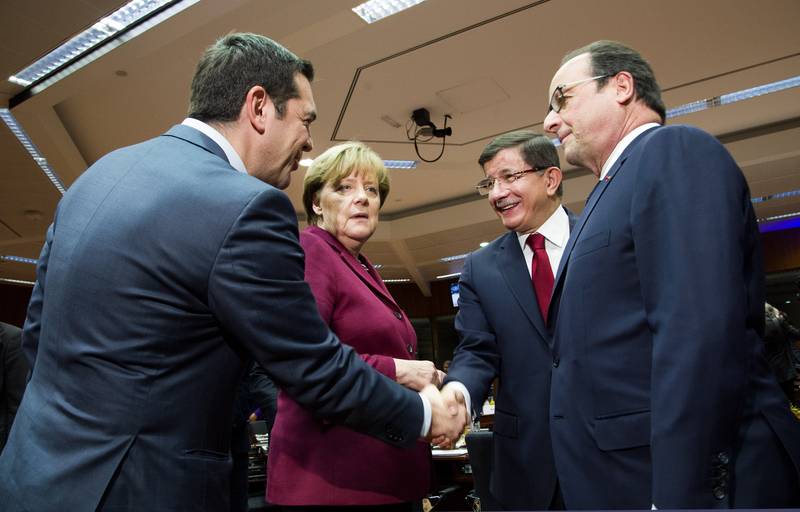
In return for the delayed publishing, the report spares Turkey nothing, establishing that the pace of the reforms has slacked. This could be explained to a certain extent with the prolonged election process, but it is also said that the repeatedly stated commitment to reforms is in contradiction with actual actions, for several codes have been voted in that are against European standards concerning the rule of law, freedom of expression, and the freedom of assembly. The EC pays very serious attention to the parliamentary elections that took place on June 7th of this year and failed to form a government. That is why, in October, in Turkey there were new elections held that were the reason the EC delayed publishing the report. One of the shortcomings of the election process, says the report, is the benchmark of 10% to enter parliament, which, according to the EC, is the highest of all states in the Council of Europe.
The report quotes data from international observers, who claim that the intervention of the president (Recep Tayyip Erdoğan) in favour of the ruling party was in violation of his constitutional powers. Media were subjected to huge pressure and threats, which led to self-censure. There are suspicions about the work of the Radio and Television Supreme Council as well. The EC recommends a full-scale reform of parliamentary rules and full investigations of all threats to media and individual journalists. Although not using this phrasing, the EC’s report for the first time pays very serious attention to the authoritarian symptoms, shown by Turkey. There is mention of the lax supervision over the work of the government because of the limited capacity of parliamentary committees. The government is too slow to respond to parliamentary questions and the media coverage of the work of investigative parliamentary committees on signals for corruption at the high levels was banned from court.
Fighting corruption and organised crime in Turkey has for the first time been thoroughly scrutinised. It is notable that these parts of the report are much more detailed than in the progress report on Serbia, for example. According to the EC, fight against corruption remains inadequate, mainly because of the intervention of the executive branch in the investigation and prosecution of corruption at the high levels. There is also lack of progress regarding fighting organised crime.
In many other spheres, however, Turkey is making good progress, like in the reform of state administration, economy and the financial framework. There are several recommendations made to the state. Regarding rule of law, Turkey is expected to guarantee the independence of the judiciary using the relevant political and legal environment, to limit the influence of the executive on the Supreme Board of Judges and Prosecutors, and put an end to the practise of transferring judges against their will, to strengthen the independence of the prosecutor’s office and law enforcement agencies when it comes to prosecuting corruption at the highest levels, to vote in codes that will ensure adequate penalties for corruption, to accept a new strategy for fighting corruption.
Regarding fighting organised crime Turkey needs to vote in a law for the protection of data and ensure a good collaboration with international law enforcement agencies, including Europol and Eurojust, as well as allow for the confiscation of assets of suspected participants in criminal networks. All forms of threat against journalists and media are to be investigated as well, there needs to be a guarantee that the defamation law will not be used as a pressure tool, as well as harmonising the laws on Internet with the European standards.
According to one of the interpretations of the text of the hit song “Macarena”, in fact the girl Macarena was cheating on her boyfriend not just with one, but two of his friends, while he was at war. The “cheating” on human rights, media freedom, and the independence of the judiciary is a problem for several EU member states as well, which will hardly go unnoticed by Turkey during the negotiations if what was agreed on Sunday sticks. So far, the opening of the chapters that deal specifically with these problems (23 and 24) remains blocked. If the Cyprus problem is resolved, it is possible for these chapters to be opened. Love for intrinsic European values is secondary at the moment. For all this to happen, however, Turkey and the EU need to rebuild trust in each other, which requires effort on both sides.
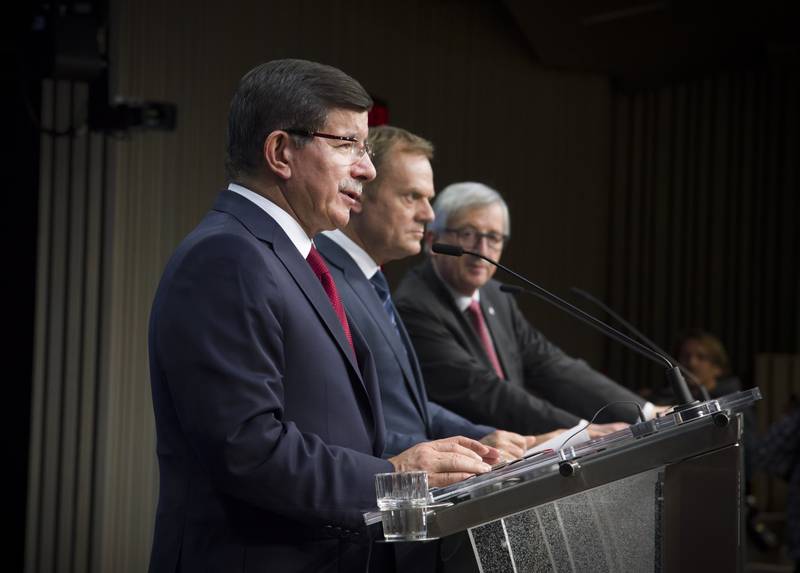
Croatian Prime Minister Zoran Milanović said quite directly to journalists in Brussels that Turkey’s getting closer to the EU will be a very long process. He gave an example with the chapter that is to be opened in two weeks – “Economic and monetary policy” by pointing out that conditions in it are such that Turkey cannot or wishes not to fulfil, because of various macroeconomic and financial reasons. “Let alone human rights and all other standards, which are terribly high, as we in Croatia know very well. And rules are rules to everyone”, he added. Bulgarian PM Boyko Borissov, whose governance is marked by numerous cheatings to the rule of law, media freedom, and independence of the judiciary, threatened that he would insist that Turkey fulfils all requirements, just like all the other states that have been accepted so far.
This position is quite vulnerable, having in mind that Bulgaria was accepted under the condition that it will finish the reform of the judiciary and will lead an uncompromising battle with corruption and organised crime, but eight years later this commitment is not only not fulfilled, but regress is noted. To most of the other leaders Turkey’s European integration was secondary. But this is Macarena – beautiful and unfaithful, but still a hit in Turkey.
Translated by Stanimir Stoev
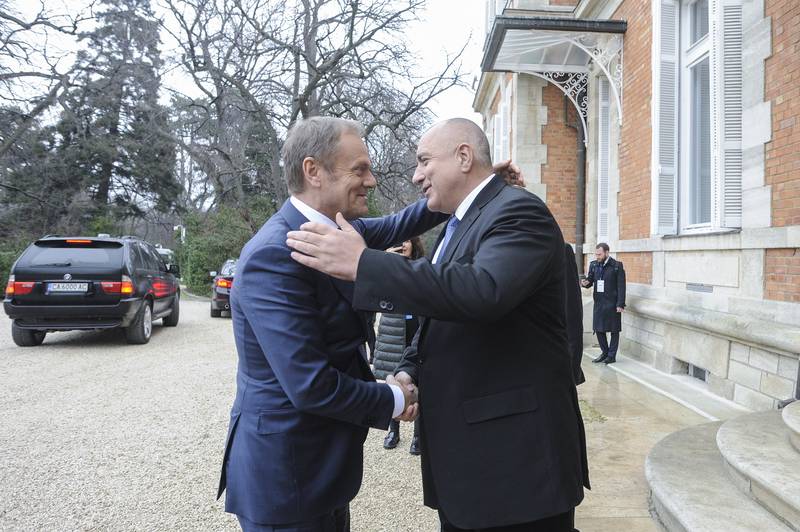 Donald Tusk, Boyko Borissov | © Council of the EU
Donald Tusk, Boyko Borissov | © Council of the EU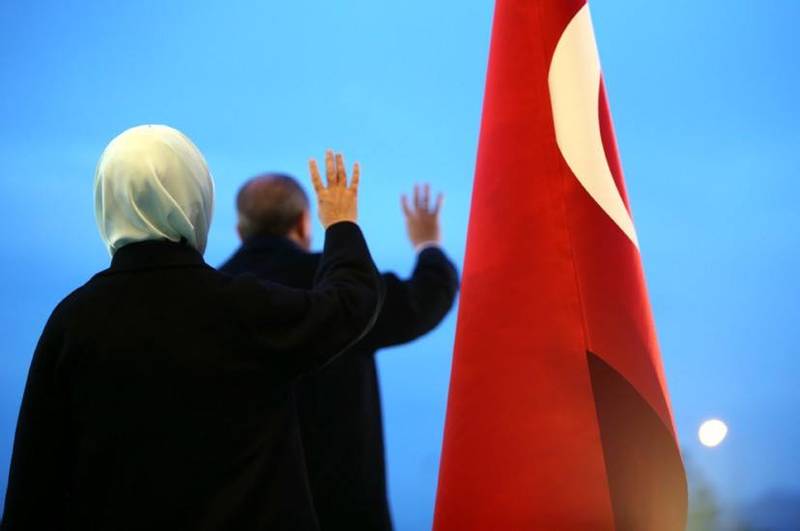 | © Turkey Presidency
| © Turkey Presidency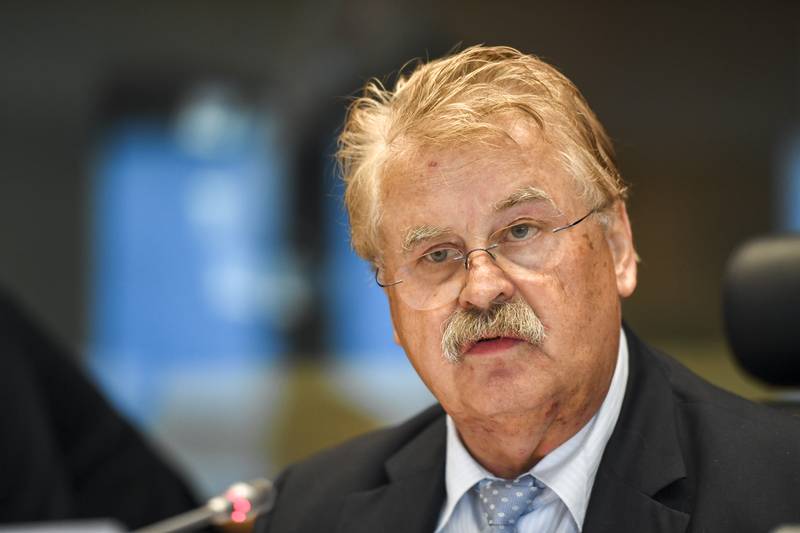 Elmar Brok | © European Parliament
Elmar Brok | © European Parliament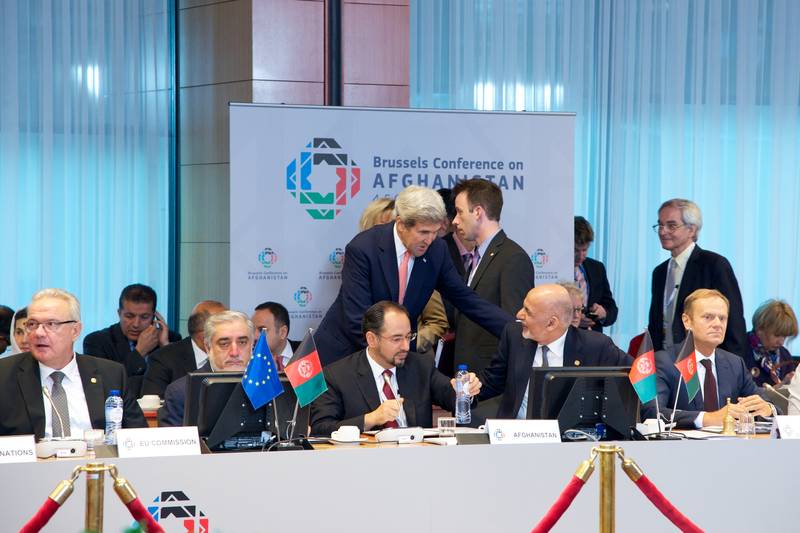 | © Council of the EU
| © Council of the EU Davutoglu, Tusk, Juncker | © Council of the EU
Davutoglu, Tusk, Juncker | © Council of the EU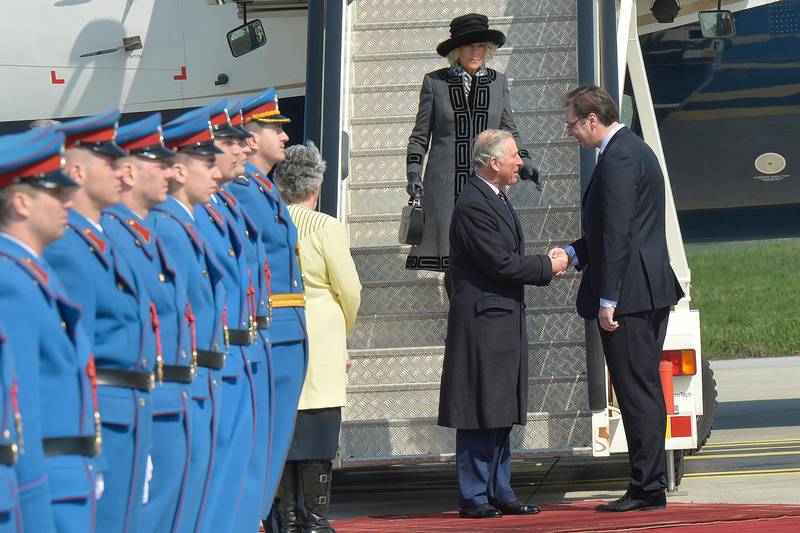 | © Vlada RS
| © Vlada RS